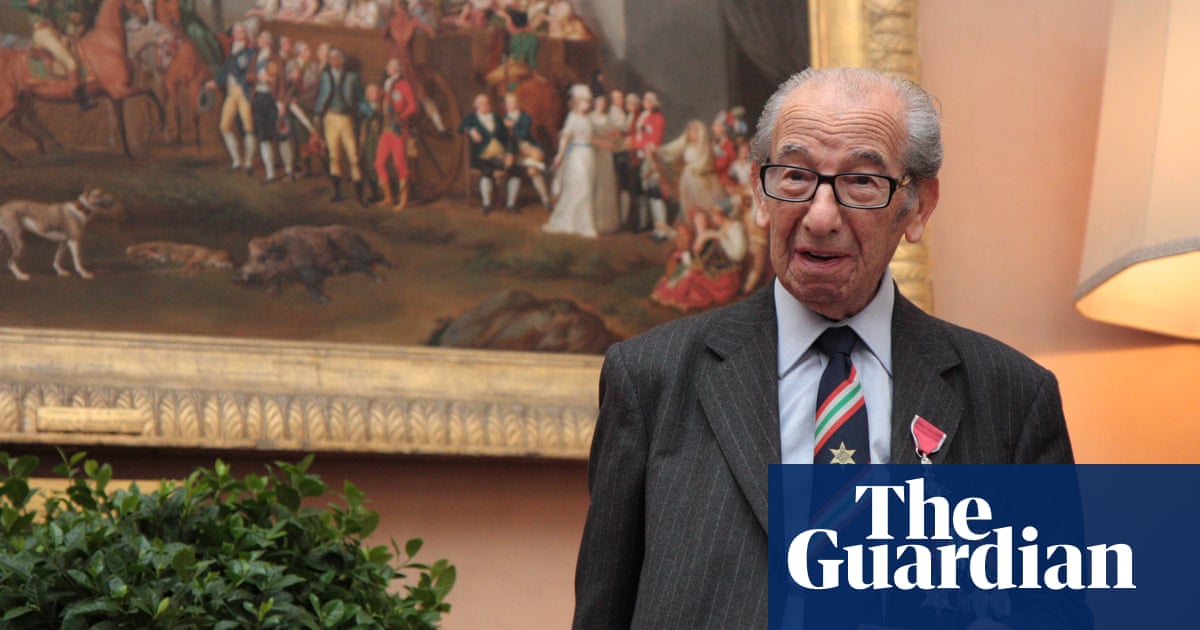
British nationals living overseas for more than 15 years will be given the right to vote in elections under new laws tabled by the government, ending a 20-year battle by 99-year-old Harry Shindler.
The move, unveiled in the Queen’s speech, could give the right to vote in local and general elections to 3 million Britons retired or working abroad.
“I might have a glass of wine to celebrate,” said Shindler, a second world war veteran, who celebrates his 100th birthday in July.
He said the electoral integrity bill, which aims among other things to remove the 15-year limit on “the voting rights of British expats and making it easier to cast their vote”, would deliver British nationals their “last democratic right”.
A tireless campaigner for the right to vote, the promise represents a crowning moment for Shindler who took his case unsuccessfully to the high court in 2016 and the European court of justice in 2018.
In an interview with the Guardian, he revealed he had received a “nice, friendly letter” from Boris Johnson in January telling him he would make good on the promise made in three Conservative party election manifestos.
“He said many expats worked very hard for their country and have retired abroad and decided to finish off their days somewhere else but that they had made a contribution to their country.
“He said to me: ‘You, among others, fought for your country and to take away your voting rights is a bit much.’ He was really frank and did say the law would be changed and we could all vote in the next election,” Shindler said.
Shindler served for six years with the Royal Fusiliers and the Royal Electrical and Mechanical Engineers and took part in the allied landing at Anzio in southern Italy and the liberation of Rome.
“I am delighted with this, as long as that is now translated into practice with arrangements to allow us vote in the next general election,” he added.
Jane Golding, co-chair of British in Europe, which has also campaigned for the vote, said “getting our vote back matters hugely”. But she raised concerns that the enfranchisement could come at a price.
It was proposed as part of a wider bill that could force voters to show ID at polling stations, which could disfranchise younger and poorer voters who did not have passports or driving licences, she said.
“If the government is serious about its global Britain agenda, it should be forging links with its overseas nationals as a key form of soft power. Restoring our votes for life would be the first step towards recognising the pivotal role that we can play,” said Golding.
The prime minister’s spokesperson said voter ID was likely to include a wide range of documents including blue badges for disabled drivers and voter ID cards available from local councils to those without a passport or driving licence.
It is estimated that about 4.3 million Britons of voting age live elsewhere across the globe, with about 3 million unable to vote because of the 15-year cut-off date.
Up to 2010, the numbers overseas enabled to vote was small with about 35,000 on the voting register. But this soared amid the Brexit debate, with 285,000 registering to vote in the snap election called by Theresa May in 2017.
The first hint that the government would deliver on its promise came in March when the chancellor, Rishi Sunak, announced in a one-line entry to his budget speech that “the government is providing an additional £2.5m to remove the limit preventing British citizens who live overseas from voting after 15 years”.












